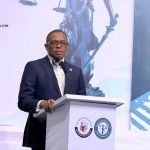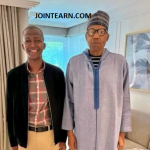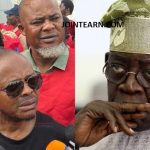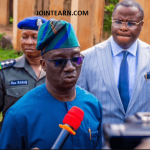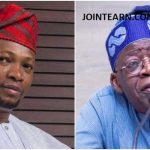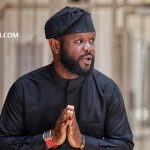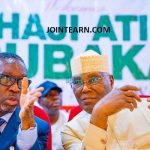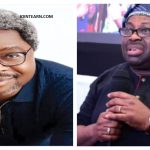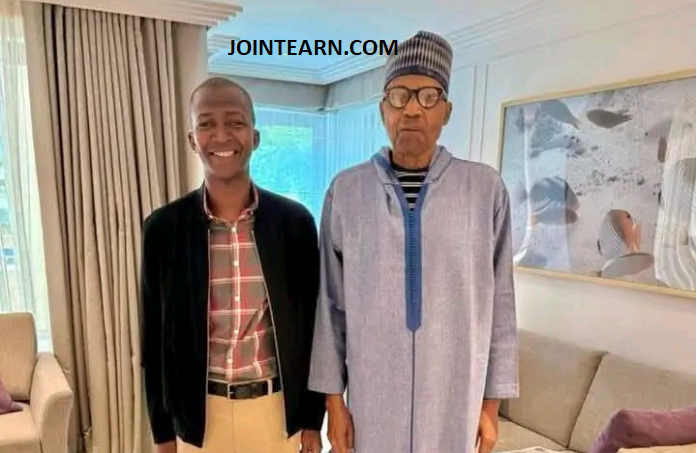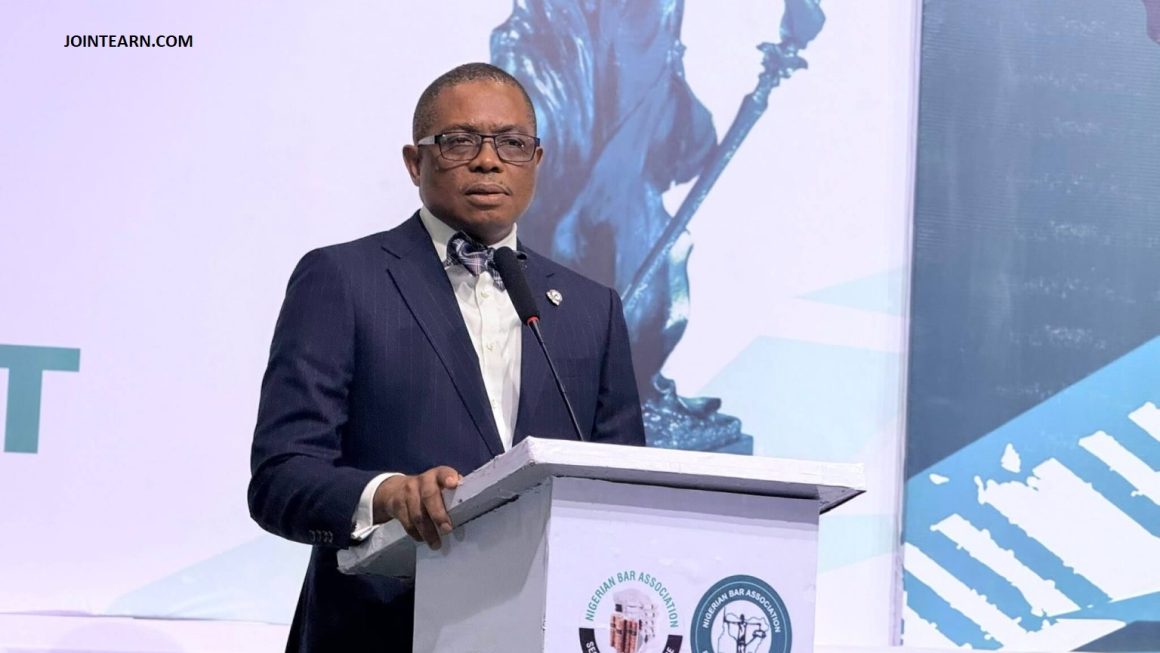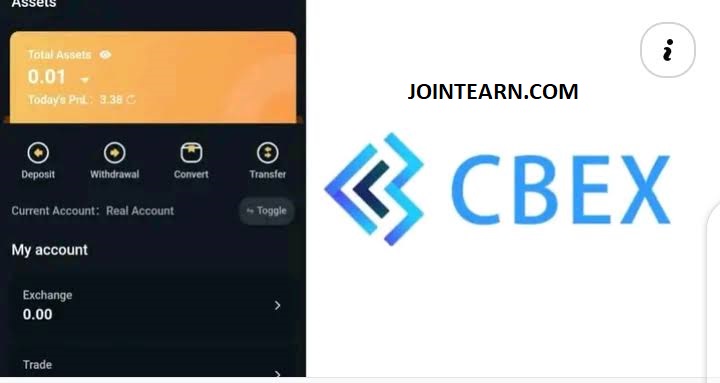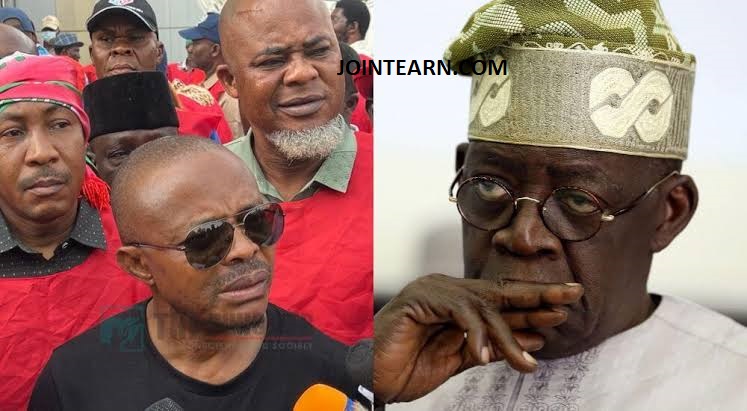Former Chairman of the Economic and Financial Crimes Commission (EFCC), Abdulrasheed Bawa, recently paid a visit to former President Muhammadu Buhari in London, sparking conversations about their long-standing relationship and possible political undercurrents ahead of Nigeria’s shifting political landscape. The meeting, which took place at Buhari’s private residence in the UK capital, was confirmed by close aides of both men and has since attracted attention across political and media circles in Nigeria.
Bawa, who was suspended from office in 2023 amid investigations into his tenure at the anti-graft agency, has kept a relatively low profile since his suspension. His visit to Buhari is being interpreted by many as a strategic move, possibly aimed at seeking support or realignment within the northern political bloc or simply rekindling ties with the former president who appointed him.
A Quiet Yet Significant Meeting
The meeting between Bawa and Buhari was described as cordial and lasted over an hour. Sources close to the former EFCC boss revealed that Bawa expressed his gratitude to Buhari for the opportunity to serve under his administration and discussed his current outlook and future ambitions. The tone of the visit, according to insiders, was both reflective and forward-looking.
“Bawa came to see Baba (Buhari) out of respect. Regardless of the circumstances of his exit from the EFCC, he still holds Buhari in high regard,” a close associate of the former anti-corruption czar said.
While the content of their discussions remains largely private, it is believed that matters concerning Nigeria’s anti-corruption drive, the current state of national governance, and Bawa’s future in public service were key topics.
Buhari’s Influence Still Felt
Despite leaving office in 2023 after completing two terms as Nigeria’s president, Muhammadu Buhari continues to command significant influence within the country’s political elite, especially in the North. The former president has deliberately maintained a low profile since relocating to London, engaging primarily in private affairs and only occasionally issuing public statements on national matters.
Buhari’s quiet lifestyle in London has not stopped political figures, government officials, and former appointees from visiting him to pay their respects or seek his counsel. Abdulrasheed Bawa’s visit is just the latest in a series of high-profile visits from Nigerian politicians and public figures.
A source from the Buhari camp said: “Buhari still remains a moral compass for many within the APC and even beyond. People come to him for guidance, advice, and to stay in touch with the power network that formed around him during his presidency.”
Bawa’s Legacy and Legal Struggles
Bawa’s tenure as EFCC chairman, which began in February 2021, was marked by a mix of achievements and controversies. He was widely regarded as a symbol of a new generation of anti-corruption crusaders, being the youngest person to head the EFCC at the time of his appointment. Under his leadership, the commission secured several high-profile convictions and intensified its crackdown on internet fraud and public sector corruption.
However, his administration was also marred by allegations of selective prosecution, internal conflicts within the agency, and eventually, accusations of abuse of office. In June 2023, President Bola Tinubu suspended Bawa indefinitely to allow for a “thorough investigation” into his activities while in office. He was subsequently detained by the Department of State Services (DSS) for several weeks before being quietly released.
Since then, Bawa has kept a low public profile, only appearing occasionally at private functions. His London visit marks one of his first publicized movements since his release, and political observers are closely watching to see whether he plans a return to public service or political engagement.
Speculations and Political Implications
The timing of the visit has led to speculation about Bawa’s future plans. With the 2027 elections already on the horizon and Nigeria’s political terrain beginning to shift once again, many believe Bawa may be positioning himself for a role either within the political structure or in a governance capacity.
Political analysts suggest that Bawa’s meeting with Buhari may be an early sign of regrouping within certain factions of the All Progressives Congress (APC), especially among northern elites who remain loyal to Buhari’s political ideology.
“This meeting may appear innocent on the surface, but in Nigerian politics, such visits are often loaded with meaning,” said political analyst Ibrahim Yusuf. “It could be about image laundering, realignment, or even preparing the ground for a comeback. Bawa still has a network, and reconnecting with Buhari might be part of a broader strategy.”
The Road Ahead for Bawa
Whether Abdulrasheed Bawa intends to re-enter public service, contest for political office, or simply maintain his personal ties remains to be seen. What is clear, however, is that the former EFCC boss still commands attention, and his movements will continue to be closely monitored by political watchers.
Many within the anti-corruption community in Nigeria have also reacted cautiously to the news of his visit to Buhari. Some view it as a legitimate effort to reconnect with his former mentor, while others question the optics of such a move, given the controversies surrounding his exit from office.
For now, Bawa has made no official statements regarding the purpose of the visit or his next steps. But in Nigeria’s unpredictable political landscape, even a simple visit can signal deeper shifts and potential comebacks.
As the country continues to grapple with the challenges of governance, corruption, and youth disengagement from politics, the re-emergence of figures like Bawa, especially with high-profile connections, will likely fuel debates about accountability, redemption, and the ever-evolving nature of political survival in Nigeria.
One thing is certain: Abdulrasheed Bawa’s journey in Nigerian public life may be far from over.
